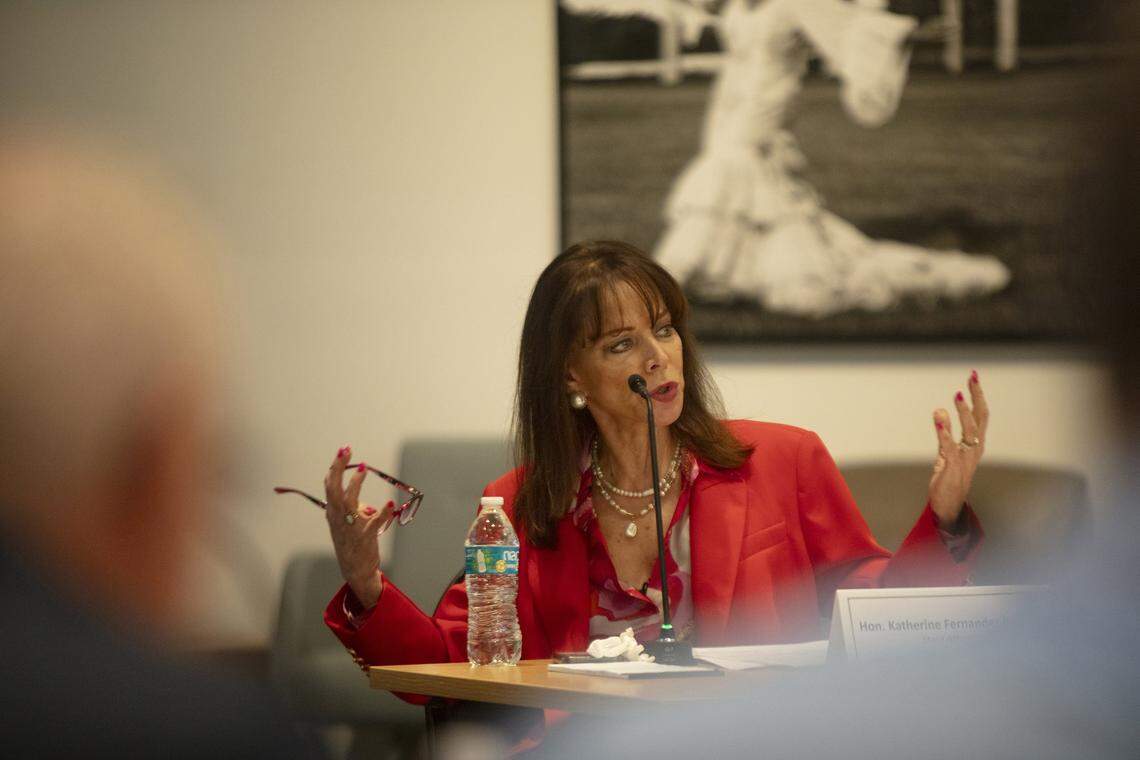Florida leads the nation in boating accidents and fatalities, and Miami-Dade County had the most mishaps on the water in the state.
Yet, for a state with more than 1 million registered boats, Florida has much fewer regulations for the operation of vessels than cars even though accidents on the road are easier to avoid. A car driver can hit the brakes to avoid an obstacle. When crashes do occur, seatbelts and airbags save many lives every day. Boats lack these safety features.
Following a series of high-profile fatal boat crashes in South Florida in the past few years, Miami-Dade County established a task force of industry professionals and relatives of victims with the goal of recommending new legislation to enhance boater education and toughen penalties for violating navigational laws.
READ MORE: DeSantis signs boater safety law named for Miami-Dade teen who died in 2022 crash
“Unfortunately, due to lack of knowledge or willingness to follow navigational rules, the waterways have become an increasingly unsafe place to be,” Miami-Dade State Attorney Katherine Fernandez Rundle said during a meeting that the task force held Thursday at the county’s Main Library in downtown Miami.
“We have more rules and regulations regarding our roadways to keep us safe than we do our waterways,” said Rundle, who is one of the eight members of the Boater Safety and Bay Education task force.
According to the Florida Fish and Wildlife Conservation Commission, there were 685 boat accidents in the state in 2024, with 81 fatalities. Miami-Dade led the state with 75 accidents, eight deaths and 41 injuries. Monroe County, which includes all of the Keys, came in second in accidents — 69 — but led the state with 10 deaths and 43 injuries, according to the FWC.
During Thursday’s meeting, high-ranking officers with the Miami-Dade Sheriff’s Office’s Marine Patrol and the Florida Fish and Wildlife Conservation Commission, the two law-enforcement agencies with the most presence in South Florida waters, told of how they feel accidents continue to happen because of lack of training among boaters and lack of consequences for those who violate navigational laws.
“At this point, I think something needs to happen. You need to get more aggressive,” said Lt. Michael Barrios from the MDSO Marine Patrol.
Boats are getting faster and more powerful, many with multiple engines that can go at least 50 mph, which is very fast on the water. And, those vessels are very expensive, ranging from hundreds of thousands of dollars to more than $1 million, Barrios said.
READ MORE: Two charged a year after 15-year-old girl killed while wakeboarding in Biscayne Bay
With the penalty for speeding through a no-wake zone being $140, many people who can afford those boats are willing to take their chances with breaking the law, Barrios said.
“Right now, it’s almost worth just running through a speed zone and getting there,” he said.
Andres Fernandez — a task-force member whose daughter Luciana was killed when the boat she was on, driven by real estate broker George Pino, crashed into a fixed channel marker in Biscayne Bay on Sept. 4, 2022 — proposed tying boating violations to points on a person’s driver’s license as a way of giving on-the-water penalties more teeth.
“The status quo is not working, and it’s not acceptable,” Fernandez said.
Fernandez and his wife, Melissa Fernandez, successfully pushed this year’s passage of legislation that is known as “Lucy’s Law” for their daughter. It increases penalties for reckless boat operation that results in serious injury, providing misleading statements to law enforcement during a boat-crash investigation and boating under the influence of alcohol or drugs.
READ MORE: Lawsuit IDs barge owner in fatal Miami Beach sailboat crash. ‘Preventable tragedy’
The Legislature overwhelmingly passed the bill, and Gov. Ron DeSantis signed it into law during the summer. But, in its original form, it broadened the age requirement for those required to take a boating-safety course before getting behind the helm.
Florida law requires those born after Jan. 1, 1988 — or those 37 years old or younger — to complete a boater-safety course before they can operate a vessel. Lucy’s Law would have expanded that requirement to those older than 37, but who haven’t lived in Florida for five consecutive years at the time they first began operating a boat.
Lawmakers stripped that part of the bill before approving it.
“The majority of the people who are breaking the law [on the water] are doing so because they are not educated,” Fernandez Rundle said. “Why? Because it’s not mandated.”
The adequate presence of police officers on the water is also a major factor in so many boating violations taking place, said Maj. Alberto Maza, law-enforcement section leader for FWC’s South Florida operations. While many municipal police agencies like the Miami-Dade Sheriff’s Office, have marine units, FWC is the main law-enforcement presence on the water statewide and is tasked with investigating all serious boat crashes.
Because of budget constraints, the agency has very few patrol vessels compared to the amount of recreational boaters.
On any given day, FWC can only have about 10 boats patrolling off Miami-Dade County, which has almost 60,000 registered vessels. About 35 FWC officers, who work in two shifts, are assigned to Miami-Dade, Maza said.
“If it was up to us, we’d have more than 50 officers out there,” Maza said.

